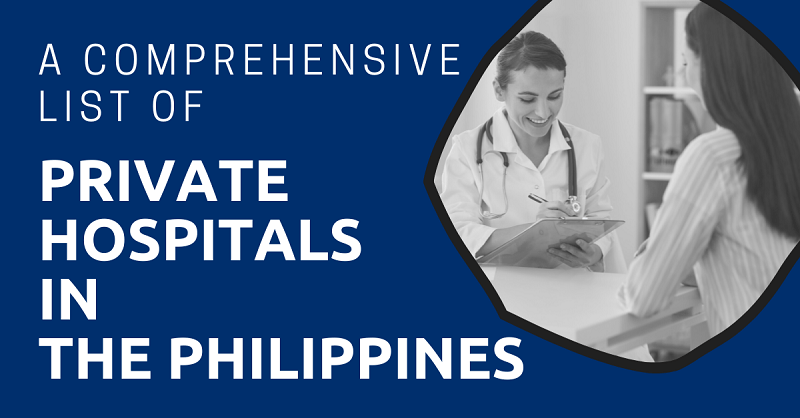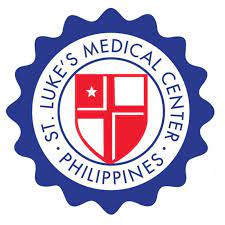
This article will take approximately 17 minutes to read. Don't have the time right now? No worries. Email the ad-free version of the article to yourself and read it later!
There are many things to consider when you are planning to visit or relocate to the Philippines. Knowing where the closest private hospitals are should be at the top of the list. If you happen to need medical help, it’s good to know that you can count on talented Filipino medical professionals.
Expats who have made the Philippines their home are fortunate to have access to world-class medical facilities and top-notch medical expertise. In some cases, it can be better than it is back home. The trick is knowing where to find the best medical care.
In my experience, I notice a great difference in treatment quality between hospitals in the Philippines. For expats who expect the highest quality of care, this means finding out where the best private hospitals are located.
Disclaimer: This article may include links to products or services offered by ExpatDen's partners, which give us commissions when you click on them. Although this may influence how they appear in the text, we only recommend solutions that we would use in your situation. Read more in our Advertising Disclosure.
Contents
- Types of Hospitals in the Philippines
- The Public System vs. the Private System
- List of Private Hospitals in the Philippines
- Recommended Private Hospitals in Manila
- Recommended Private Hospitals in Quezon City
- Recommended Private Hospitals in Cebu
- Recommended Private Hospitals in Davao City
- Recommended Hospitals in Region I
- Recommended Hospitals in Region II
- Recommended Hospitals in Region III
- Recommended Hospitals in Region IV
- Recommended Hospitals in Region V
- Recommended Hospitals in Region VI
- Recommended Hospitals in Region VII
- Recommended Hospitals in Region VIII
- Recommended Hospitals in Region IX
- Recommended Hospitals in Region X
- Recommended Hospitals in Region XI
- Recommended Hospitals in Region XII
- Recommended Hospitals in Region XIII
- Best Private Hospital in the Philippines
- Paying Your Hospital Bill
- OPD Consultation Costs
- Emergency Plan in Rural Areas
- Ambulance Service in the Philippines
- Major Diseases
- Dental Care
- Now, on to You
Types of Hospitals in the Philippines
First, for those who are unfamiliar with the Philippine medical system, hospitals are divided into three main categories.
- Level 1 Hospital: Primary facilities offer first-contact emergency services and hospitalization for simple cases. Think of it as a small clinic. You can find many Level 1 hospitals in rural areas.
- Level 2 Hospital: Secondary facilities provide care for those who require hospitalization and/or specialists with at least 6 months of experience in their field.
- Level 3 Hospital: This is the type of hospital you should go. Tertiary hospitals provide expert care for those who need access to experienced specialists and the most sophisticated diagnostic equipment. You can mainly find level 3 hospitals in big cities like Manila, Cebu, and Davao.
The Public System vs. the Private System
The Philippines is home to more than 1,200 hospitals.
- Approximately 60% are privately operated.
- The other 40% are public facilities
There are some very significant disparities between the two systems.
- Funding: The public system is woefully underfunded and exceedingly strained. This results in public hospitals not having the same modern equipment that private hospitals do
- Number of doctors: The majority of Filipino medical professionals opt for the higher wages and better working conditions offered by the private system. About 70% of them are employed by the private sector.
Because of this, in my opinion, you should avoid going to public facilities unless necessary. In my case, I always go to a private hospital.
Illustrating the Disparity
To illustrate the differences between the two systems, we can compare an account of an experience in a public hospital to an experience in a private facility as told by an expat in Cebu City.
Real Experience in a Public Hospital
His neighbor’s 14-year-old son who collapsed and became unresponsive. An emergency vehicle from the local barangay hall arrived within minutes and transported the young man to a nearby public hospital. Unfortunately, private care wasn’t an option for the boy.
According to the expat, the hospital was ridiculously overcrowded and filled with beds that sat no more than two feet apart. It was also clear to him that the ward was grossly understaffed.
When he saw his neighbor’s son, he was shocked to see that the sister was operating a manual ventilator. The 14-year-old boy had stopped breathing several hours earlier and no ventilation machines were available.
In this case, the doctors and nurses were phenomenal. The main point here was the lack of such basic medical equipment and the overall state of this particular public hospital.
Real Experience in a Private Hospital
The expat then told of his week-long stay at a private hospital after suffering a sudden and severe medical issue. Being right in Cebu City and close to Chong Hua Hospital, an ambulance was quick to arrive and deliver him to his destination where the medical professionals immediately sprang into action.
As he recovered in his air-conditioned private room, he was regularly visited by a team of doctors and nurses who tended to his every need. During his week at Chong Hua, he was given a full battery of tests including CT scans, electrocardiograms, and regular blood work. No line-ups or waiting around.
While his insurance didn’t cover the cost of the private room, it took care of everything else. He said that he would gladly pay a little extra for the privacy and amenities if he ever found himself in a similar situation.
What to Expect When You Arrive at A Private Hospital
It doesn’t matter if your friend drives you to the hospital or you arrive in an ambulance, you can rest assured that you’ll be tended to right away. In most cases, you will be given a bed in the emergency ward while the doctors and nurses get the situation under control. You will also likely be asked about your plans to pay the bill. This is where it helps to have your medical insurance details in order.
If doctors decide to admit you, and you agree, then you can ask for a private room. Otherwise, you may find yourself in cramped quarters with little more than a draped bed sheet separating you from your neighbors. If your medical emergency does not require a stay, then you simply settle your bill and walk away.
Important: It’s worth noting that private hospitals in the Philippines are clean and very well organized. There are more than enough medical professionals on hand which means you will be immediately afforded all the attention you require. Such a calm, professional atmosphere can certainly help relieve a lot of the stress associated with a hospital visit.
List of Private Hospitals in the Philippines
According to the Private Hospitals Association of the Philippines (PHAP), the Philippines is home to 1,071 private medical centers. Of those, over 600 are members of the PHAP.
If you go to their website, you’ll find a comprehensive list of all private hospitals that are PHAP members. This is a great starting point in your search for a private hospital. You will find some helpful information including location, contact information, and the hospital’s bed capacity.
While it wouldn’t be realistic to list all of the private hospitals in the Philippines, you can use the following information to commence your search. These recommended private facilities are among the best in the Philippines, and they are listed according to the region in which they operate.
Recommended Private Hospitals in Manila
- The Medical City – Level 1 hospital with 500 beds
- Alabang Medical Clinic – Level 2 hospital with 30+ beds
- Makati Medical Center – Level 1 hospital with 600 beds
Recommended Private Hospitals in Quezon City
- St. Luke’s Medical Center – Level 1 hospital with 640+ beds
- Pacific Global Medical Center – Level 2 hospital with 100 beds
- Allied Care Experts Medical Centre – Level 1 hospital with 100 beds
Recommended Private Hospitals in Cebu
- Chong Hua Hospital – Level 1 hospital with 660 beds
- Adventist Hospital – Level 1 hospital with 60 beds
- Dr. Ignacio M. Cortez General Hospital – Level 1 hospital with 60 beds
Recommended Private Hospitals in Davao City
- Adventist Hospital – Level 2 hospital with 75 beds
- Brokenshire Integrated Health Ministries – Level 1 hospital with 200 beds
- Alterado General Hospital – Level 1 hospital with 160 beds
For anyone planning to spend time in any other part of the Philippines, you can find private hospitals in the following regions:
Recommended Hospitals in Region I
- Dagupan Doctors Villaflor Memorial Hospital – Dagupan City
- Lorma Medical Center – La Union
- Luzon Medical Center Inc. – Dagupan City
- Nazareth General Hospital Inc. – Dagupan City
- Metro Vigan hospital – Ilocos Sur
Recommended Hospitals in Region II
- St. Paul Hospital – Cagayan City
- Javonillo Hospital – Isabela
- Isabella United Doctors Medical Center Inc. – Cagayan City
- Dr. Ronald P. Guzman Medical Center – Tugugarac City
- PLT Luis A. Tiam Medical Center – Nueva Viscaya
Recommended Hospitals in Region III
- Allied Care Expert Malolos Doctors – Malolos Bulacan
- Angeles Medical Center Inc. – Angeles City
- Central Luzon Doctors’ Hospital – Tarlac City
- Floridablanca Doctors’ Hospital Inc. – Pampanga
- Isaac & Catalina Medical Center – Balanga City
Recommended Hospitals in Region IV
- Adventist Hospital Palawan – Princesa City
- Angono Medics Hospital Inc. – San Isidoro
- Batangas Health Care Hospital – Batangas
- Bauan Doctor’s General Hospital – Batangas
- Calamba Doctors’ Hospital – Laguna
Recommended Hospitals in Region V
- Ago General Hospital – Legaspi City
- Leon D. Hernandez Memorial Hospital – Camarines Norte
- NICC Doctors Hospital – Naga City
- Sorsogon MMG Hospital & Health Services – Sorsogon
- Universidad de Sta. Isabel Health Services – Camarines Sur
Recommended Hospitals in Region VI
- Bacolod Adventist Medical Center – Bacolod City
- Capiz Doctors Hospital – Capiz
- Dr. Pablo O. Torre Memorial Hospital – Bacolod City
- Iloilo Doctors Hospital – Iloilo City
- Panay Healthcare Multi-Purpose Cooperative – Kalibo
- Saint Jude’s Hospital Inc. – Kalibo
Recommended Hospitals in Region VII
- Cebu North General Hospital – Talamban
- Cebu South General Hospital – City of Naga
- Holy Child Hospital – Dumaguete City
- Mactan Doctors Hospital – Lapu-Lapu City
- Englewood Hospital – Tagbilaran City
Recommended Hospitals in Region VIII
- Bethany Hospital – Tacloban City
- Consuelo K. Tan Memorial Center – Sogod
- Our Lady of Porziuncola Hospital – Calbayog City
- United Shalon Medical Center – Tacloban City
Recommended Hospitals in Region IX
- Basilan Community Hospital Inc. – Isabela City
- Brent Hospital and Colleges Incorporated – Zamboanga City
- Ciudad Medical Zamboanga – Zamboanga City
- Ospital ng Kabataan ng Dipolog – Dipolog City
- Zamboanga Peninsula Medical Center – Zamboanga City
Recommended Hospitals in Region X
- Abella Midway Hospital – Valencia City
- Adventist Medical Center – Iligan City
- Cagayan de Oro Polymedic Medical Plaza – Cagayan de Oro
- Malaybalay Polymedic General Hospital – Malaybalay City
- Tagoloan Polymedic General Hospital – Tagoloan
Recommended Hospitals in Region XI
- Good Shepherd Hospital of Panabo City – Panabo City
- Isaac T. Robillo Memorial Hospital – Calinan
- Lianos Medical Clinic & Hospital – Digos City
- Masongsong Clinic – Digos City
- Panabo Polymedic Clinic – Panabo City
Recommended Hospitals in Region XII
- Adventist Medical Center – Iligan
- Auguis Clinic & Hospital – General Santos City
- Dr. Arturo P. Pingoy Medical Center – Koronadal
- Howard Hubbard Memorial Hospital – Polomolok
- Kidapawan Doctors Hospital Inc. – Kidapawan City
Recommended Hospitals in Region XIII
- Andres Soriano Memorial Hospital Cooperative – Bislig
- Butuan Doctors Hospital – Butuan City
- Miranda Family Hospital – Surigao City
- San Francisco Doctors Hospital Inc. – San Francisco
- Surigao Medical Center – Surigao City
Best Private Hospital in the Philippines

The Philippines is home to some of the best private hospitals in the world. However, if one of them stands out above the rest, in my opinion, it would have to be St. Luke’s Medical Center in Quezon City. In addition to providing world-class patient care, St. Luke’s is a leader in research and education. St. Luke’s Medical Center also boasts over 1,700 doctors along with over 2,500 non-medical employees.
This private hospital has over 640 beds and features the most modern medical equipment including:
- 3-Tesla MRI
- 1152-slice dual-energy CT scanner
- PET scan
- Cyclotron
Paying Your Hospital Bill
Speaking of money, another thing that you need to prepare yourself for is paying the bill which you can do either in cash or by credit card. In the Philippines, those who seek medical help at a private hospital usually have to pay upfront.
This underscores the importance of understanding how your medical insurance works. Some policies take care of the billing right away while others will reimburse you after you have paid. Also, be aware that some insurance policies only cover certain ailments and injuries.
OPD Consultation Costs
Not all medical situations require a night at the hospital. Instead, a simple visit to a physician’s office will often suffice. In these non-emergency instances, you can expect to pay between ₱500 and ₱1,000 (around US$10-US$20) for a consultation. Of course, your medical plan might absorb that cost.
Emergency Plan in Rural Areas
If you are an expat in the Philippines, and you want to receive the best care, then you are far better off using private hospitals. This is especially true for those who encounter more severe medical emergencies. The biggest problem is that many of the best private hospitals are generally located in and around major cities like Manila, Cebu City, and Davao City.
Unfortunately, not all the best places to live in the Philippines have access to private hospitals.
If your medical emergency is pressing and the nearest private hospital is too far away, then you need to be prepared to use the services of a public facility temporarily. This can be somewhat scary for anyone who is used to sparkling-clean hospitals that have ample staff on hand to help.
Public hospitals in the Philippines can be extremely chaotic and you will often find yourself placed in tight quarters with other patients.
Shortcomings aside, the public system still delivers quality care. If it’s an option, you can always upgrade your accommodations to a private or semi-private room to get away from the pandemonium of the cramped public bedspace.
Many private rooms in public hospitals come with modern amenities like air conditioning, television, and a comfort room with a shower which can make your stay much more pleasant. Private rooms in public hospitals normally range from ₱800 to ₱1,500 (around US$14 to US$25) per day.
You can then transfer to a private hospital when the time is right.
Tip: You should also familiarize yourself with the best private hospitals in the area you plan to be in. In my case, I list down their contact numbers in my phone. This can save you a lot of valuable time and needless panic should you suddenly require medical attention.
Ambulance Service in the Philippines
You can simply call 911 to call an ambulance that will respond within minutes and take you to the nearest hospital. While this approach might work in a major Philippine city, it’s a little different in out-of-the-way locations in the provinces.
In those places, you can get an emergency vehicle to respond and transport you to the hospital, but there’s a good chance that it won’t be manned by trained paramedics. In fact, you would be lucky to have anyone onboard who knows much beyond basic first aid.
This illustrates another reason for making sure you have easy access to a private medical facility. Peace of mind comes with knowing that an ambulance, paramedics, and a private hospital are close by.
As a point of interest, you can expect to pay about ₱2,000 for an ambulance which is much cheaper than getting an ambulance in many other countries.
Tip: There are many cases where 911 may not be able to dispatch an ambulance immediately. If that happens, I recommend contacting a private ambulance service instead. While private ambulances cost around ₱16,000 for short-distance transport, in a life-or-death situation, every minute matters.
Private Ambulance Services:
- Lifeline 16-911: Dial 16-911
- Stat Med Ambulance Service: (02) 8824-0999
- RAPID Ambulance Service: (02) 8651-7153
Major Diseases
An effective response plan starts with prevention. Before you come to the Philippines, make sure to see your physician to get appropriately inoculated. Doing so will greatly minimize the possibility of contracting some of the nasty viruses and pathogens in the Philippines that can land you in the hospital in the first place.
These include but certainly aren’t limited to:
- Dengue Fever
- Encephalitis
- Hepatitis
- Typhoid
- Malaria
Dental Care
Did you know that most private hospitals in the Philippines provide dental services? A simple dental procedure such as cleaning or having a troublesome cavity filled is quite costly in many foreign countries. You can pay hundreds or even thousands of dollars every year to maintain your pearly whites. Well, not in the Philippines.
The cost of dental care varies from clinic to clinic because private hospitals set their fees. With that said, a standard cleaning should cost about ₱700 (around US$12) although it can be as much as ₱1,500 (around US$25) or higher depending on such factors as:
- Difficulty in the cleaning
- Medication required
- Existing cavities and infections
- The need for deep scaling
Dental clinics in private facilities do a lot more than basic cleaning. For example, the following procedures and prices are among the many dental services offered at the San Salvador Dental Clinic in Quezon City.
| Procedures | Prices |
| Tooth Extraction | ₱2,000 (around US$34) |
| Tooth Bonding/Filling | ₱2,000 (around US$34) |
| Fluoride Treatment | ₱1,200 (around US$20) |
| Root Canal | ₱5,500 (around US$93) |
| Retainer | ₱4,500 (around US$76) |
| Metal Braces | ₱40,000 (around US$680) |
| Teeth Whitening | ₱14,000 (around US$238) |
| Wisdom Tooth Removal | ₱15,000 (around US$255) |
As you can see, these private dental providers are very affordable and allow expats to maintain a high degree of dental health without paying massive bills.
Even if your medical insurance plan doesn’t cover dental work, the low prices and high-quality service is hard to pass on.
Now, on to You
Whether you are just visiting the Philippines or planning to make it your new home, knowing about the medical system here is critical. Getting the appropriate medical coverage is too, but understanding health insurance in the Philippines is an entirely different topic.
It’s now on to you to take a few moments to get further acquainted with the private hospitals that operate in your area. Some facilities will even let you preregister which can save a bit of time and trouble.
By choosing a private hospital, you can be confident that you will be given the best care possible and have access to the most modern medical equipment. You can even catch up on any needed dental work while you’re at it.







